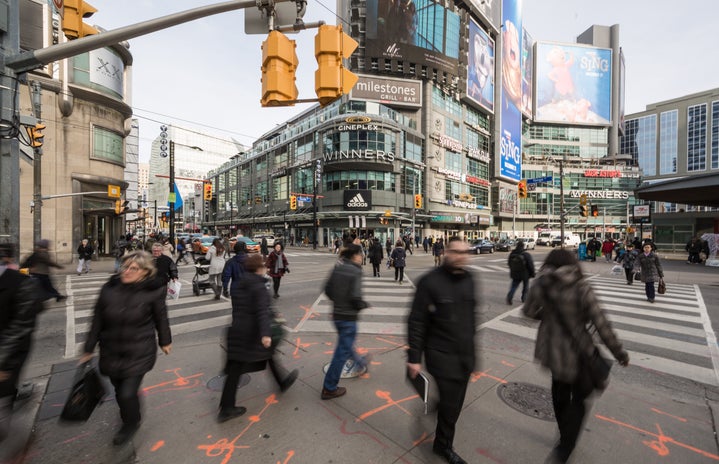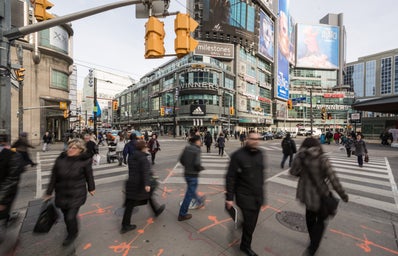Over the holidays, I went on a family vacation to Germany, Austria and the Czech Republic. Besides the ecstasy of finally visiting Europe and feeling awe at the intricate and beautiful architecture and the surprise at how cutting ice is when it flies in your face, I’ve also noticed something quite subtle and yet profound.
It is the pace we walk.
In Europe, there seems to be no rush. People enjoy leisurely strolls (yes, even at below 0 degrees, in the freezing cold), F&B staff serve at their own pace, commuters on trains stay seated right until before the doors open. On the contrary, my family seemed to be rushing everywhere (mostly to escape the cold), grew impatient at slow service, and were the first to get up from our seats when approaching our destination. This is perhaps a result of the kanchiongness that never leaves our system, even when we are well away from the shores of our homeland.
According to many news outlets, Singaporeans are the fastest walkers in the world. With a high population density, our spaces are often shared and more packed than most cities, resulting in a need for a higher speed of transactions and transportations to prevent congestion. It is also why, compared to our size, we have one of the most complicated railway systems, yet we can’t seem to stop adding to that complexity. The reason for it is that the more stops we have, the faster we reach our destinations, and there are fewer people in one location at any one time.
Yet, I reckon that the speed of our walk is related to something more than just the physical and architectural layout of the city; it is in our culture. The kanchiongness, the constant anxiety, the need to be quick and efficient. Singapore has one of the most prominent economies in the world, and it has much to do with the way we have developed our human capital. We have developed our country from a village to a metropolis by positioning the country as a business hub . As a result, intense competition and capitalism was created, and it is inevitable that we remain in a constant state of tension.
The pace we walk has made us lose ourselves in the hustle and bustle of life.
Singaporeans are known to have tight schedules. Even as a university student, my schedule is always packed with all sorts of commitments: clubs, CCAs, family, friends and more. There is never a day where I am completely free of any responsibilities or social gatherings — every minute is packed, and my mind is set on not wasting even a second of time. Because losing time would mean wasting the opportunity to work, or to study, which could mean less allowance or worse grades. It all culminates to the fear of having an inevitable doom of my career and the lack of stable income in the future. A part of our rush is credited to our constant worry about future financial stability and competition.
Competition is a constant state of mind for those living in Singapore. We are reminded of it from young, in our bell-curved state examinations, award ceremonies, scholarships. Our worth in the education system and economy begins with the value of our grades. Not being the cream of the crop means fewer educational opportunities and career choices and often, a lower salary. Our constant chase for wealth is credited to the anxiety of being at the lower percentile. Without wealth, we can’t have a Porsche, a LV bag, a condo — tangible things to showcase wealth, and at some point, these things may become a part of our self-worth and a measure for how we value ourselves.
In this constant chase and rat race, we have little time to slow down and process things. A simple example would be maternity leave. Paid maternity leave is only 16 weeks in Singapore, although studies have shown that ideally, for proper mother-child bonding, maternity leave should be 6 months. Maternity leave is short because of this perceived need that these mothers need to return to work as soon as possible for the economy. Without the time to process things that happen in the flurry of our life, our psychology can be severely impacted. In Singapore, based on the 2022 report, 1 in 3 youths have mental health disorders such as anxiety and depression.
In this chase for financial freedom and finding our self worth, at least for me, I feel the loss of our emotional and psychological freedoms, the freedom to express our needs, desires, wants, to process our thoughts and to live our lives, not just survive. For things to change, no doubt severe upheaval of our current systems needs to be done, but sometimes the status quo is simply too permanent to erase.
But for now, perhaps we can begin with the pace of our walk.


